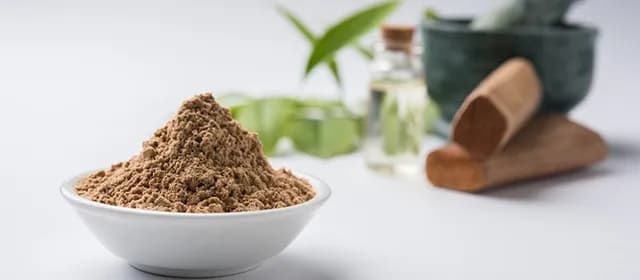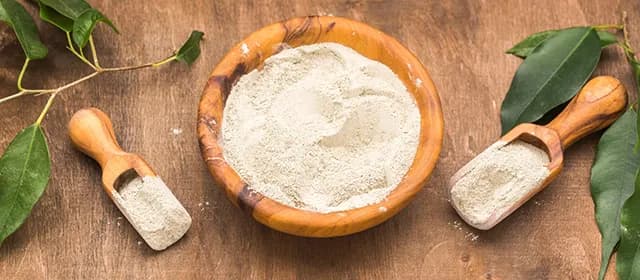Since it increases shelf life and serves as an emulsifier, a commercial form of lecithin is frequently employed in the manufacturing of foods, cosmetics, and medicines.
Additionally, lecithin supplements can be used to treat and prevent stomach problems, excessive cholesterol, and plugged milk ducts when nursing.
Some of the stated health benefits of lecithin may be attributable to phosphatidylcholine (PC), one of the primary components.
The Surprising Variety of Lecithin Sources
Although there are numerous foods that naturally contain lecithin, most lecithin supplements are produced from eggs, soy, or sunflower seeds. Lecithin can also be produced using animal, canola, or cottonseed fats.
One of the most extensively cultivated commodities in the US is soy, which is 94 percent genetically modified. An affordable source of lecithin is soy. Lecithin is obtained from soybean oil using chemicals like acetone and hexane.
Lecithin produced from sunflower oil, however, is gaining popularity as a result of regulations mandating food makers to declare allergies. If someone wants to avoid consuming products made from genetically modified crops, they also have the choice of sunflower lecithin. The extraction procedure is frequently gentler and carried out using cold pressing rather than the use of chemical solvents.
The Hidden Benefits of Lecithin
The most commonly cited lecithin benefits include:
- Cholesterol reduction
A lecithin-rich diet may increase beneficial HDL cholesterol and reduce bad LDL cholesterol, according to a study.
Supplemental lecithin has also demonstrated promise in decreasing cholesterol. Participants in a 2008 study consumed 500 mg of soy lecithin daily. The average LDL cholesterol decreased by 56.15 percent and the average total cholesterol decreased by 42.0% after two months.
- Improved immune function
Adding soy lecithin to your diet may improve your immune system, especially if you have diabetes.
According to a Brazilian study on rats, daily lecithin administration raised macrophage activity by 29%. White blood cells known as macrophages are responsible for consuming debris, microbes, cancerous cells, and other foreign substances in the body.
Additionally, non-diabetic rats had a 92 percent increase in the number of lymphocytes, natural killer cells that are crucial to the immune system. These findings need to be confirmed by additional human study.
- Better digestion
Up to 907,000 Americans suffer from the inflammatory bowel disease (IBD) known as ulcerative colitis. Lecithin may aid in reducing gastrointestinal discomfort in persons who have the condition.
Research shows that the emulsifying properties of lecithin improve intestinal mucus, protecting the stomach lining. This might be because lecithin contains phosphatidylcholine (PC), which is also present in the mucus.
Compared to those with other types of IBD or those who don't have the condition, those with ulcerative colitis have 70% less PC.
Anecdotal evidence suggests that patients with digestive distress caused by conditions other than ulcerative colitis may also benefit from lecithin consumption, despite the lack of studies in this field.
- Enhanced cognitive function
Phosphatidylcholine, a component of choline, aids in brain growth and may enhance memory.
As a result of alterations in the memory center of their brains, infant rats that received choline supplements had improved memory for the rest of their lives.
Even when the rats were old, the researchers could tell which animals had taken supplementary choline because the brain changes were so obvious.
It has been suggested that lecithin may be advantageous for those with neurologic diseases, Alzheimer's disease, and other types of dementia because of the impact that chlorine has on the brain.
- As a breastfeeding aid
Breast milk may not flow through milk ducts properly in some breastfeeding women due to obstructions. This uncomfortable condition makes breastfeeding more challenging.
Additionally, it can result in the onset of mastitis, an infection of the breast tissue that affects roughly 10% of breastfeeding American women.
As a prophylactic measure to help avoid mastitis and difficulty breastfeeding, the Canadian Breastfeeding Foundation suggests people who commonly experience blocked milk ducts to take 1,200 mg of lecithin four times a day.
However, lecithin is ineffective as a therapy for people who already have blocked ducts.
Other Uses
It has been suggested that lecithin can be used to treat:
- liver disease
- gallbladder disease
- Anxiety
- bipolar disorder
- dermatitis, eczema, and dry skin conditions
It should be noted that there is little to no data on how well lecithin works to treat these illnesses.
Is Lecithin Safe?
Lecithin is typically regarded as safe when used as a food ingredient. Lecithin supplements appear to be secure as well.
It is unknown whether using high doses of supplements while nursing a baby or a person is safe.
Since many lecithin supplements are made from foods that contain eggs and soy, taking them could put persons who are allergic to those foods at risk for health problems. Those who ingest lecithin and have certain allergies may get skin rashes.
Lecithin on the Label: How to Identify the Good Stuff?
Dietary supplements are not regulated by the FDA. This implies that their safety and purity aren't assured.
Choose supplements that have been independently examined and approved by a third party, such as the following:
- USP
- SF
- ConsumerLab
These organizations test supplements for purity and certify that the substances listed on the label are present in the supplement. Additionally, you can check for goods produced by companies using Current Good Manufacturing Practices (cGMPs).
A Quick Review
A set of lipids that are naturally present in foods including egg yolks, liver, and soybeans are referred to as lecithin. Additionally, lecithin is available as a dietary supplement.
Lecithin supplements may help lower blood pressure, lower cholesterol, and alleviate ulcerative colitis symptoms, according to some research. They also offer a supply of choline, a nutrient necessary for the health of cells and the proper operation of the nervous system.
While lecithin supplements may be beneficial for persons with specific problems, the majority of people obtain enough lecithin through their diets and don't require additional lecithin intake.
If you're considering taking a lecithin supplement, be sure to first consult your doctor.



